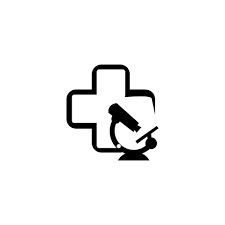What is the HbA1c Test?
You get an overview of what your glucose levels have been for the past 3 months in the hbA1c test. The main source of glucose is the food that you eat and mainly the carbs. It is mandatory for energy and your daily requirements as well. Insulin is a hormone that helps your glucose to get into your cells. For people who have diabetes, then your body will not be able to make insulin which means or their cells don't use it properly. Eventually, glucose will not be able to get into your cells that will end up rising your blood sugar levels increase. Type 2 diabetes are detected through hbA1c test. In red blood cells, a protein known as Hemoglobin is attached. When the blood glucose increases, more and more hemoglobin will be coated to your cells. The hbA1C test measures the percentage of your red blood cells the ones that have glucose-coated hemoglobin.
When is an HbA1c performed?
After the appearance of the following symptoms, you need to get the hbA1c test done.
- Feeling very thirsty
- Urination
- Losing weight without trying
- Feeling very hungry
- Blurred vision
- Numb or tingling hands or feet
- Fatigue
- Dry skin
- Sores that heal slowly
- Having more infections than usual
A prediabetes or diabetes testing should be done in adults if you are over age 45.
- Even if your results are normal, after 45 years of age you should get hbA1c after every 3 years.
- If you have prediabetes, then after every 1 to 2 years, you should perform this test.
- If you have diabetes then get this test done at least twice a year.
If you are under 45 then get tested every year or twice a year if:
- Then get tested every year if you have prediabetes.
- If you are Obese.
- Have a parent or sibling with type 2 diabetes.
- Have high blood pressure or high cholesterol levels.
- Have heart disease or have had a stroke.
- Are physically active less than 3 times a week then get tested after every 2 to 3 years.
What does an HbA1c detect?
hbA1c is used for the screening and diagnosis of the following:
Type 2 diabetes:
In type 2 diabetes, your blood glucose gets insanely high because your body is not making enough insulin to move that blood sugar from your blood into your cells. Or if your cells stop responding to Insulin.
Prediabetes:
It means that your blood sugar levels are getting higher more than usual. But these levels are not that high to diagnose diabetes. This situation can is preventive and you can stop diabetes from happening.
When do I know the Results of this Test?
You can get the test results within a few hours.
What are the benefits of this test?
The major benefit of this test is that you will get to know if you have this comorbidity (diabetes) or not.
HbA1c Test Results range?
Here are the ranges for hbA1c.
- Normal ranges of hbA1c are Below 5.7%.
- The Prediabetes ranges of hbA1C are somewhere between 5.7% to 6.4%.
- The Diabetic and not normal ranges are 6.5% or above.



.jpg)
.png)

.png)

.jpg)
.jpg)
.jpg)
.jpg)
.jpg)
.jpg)